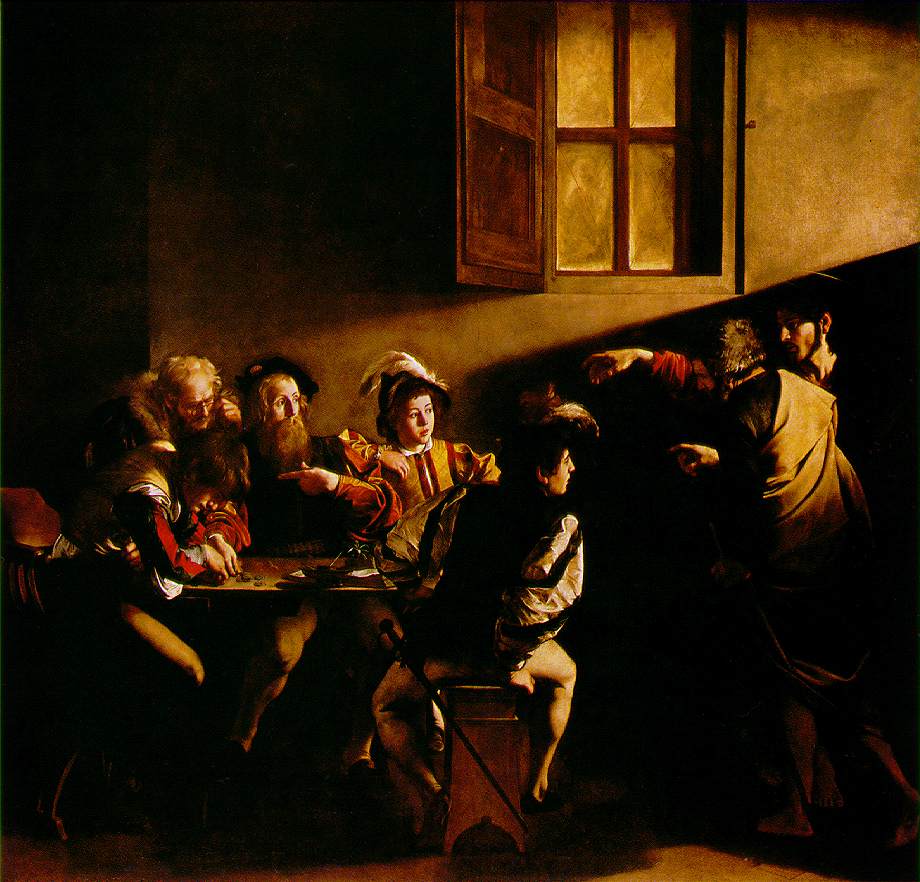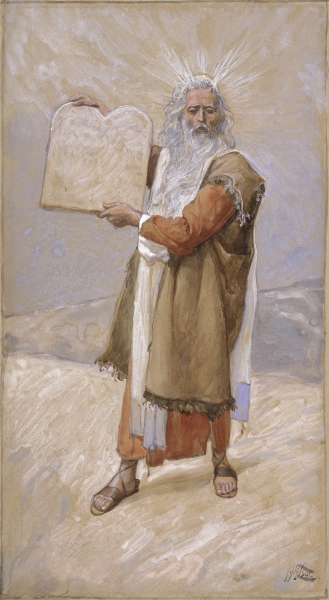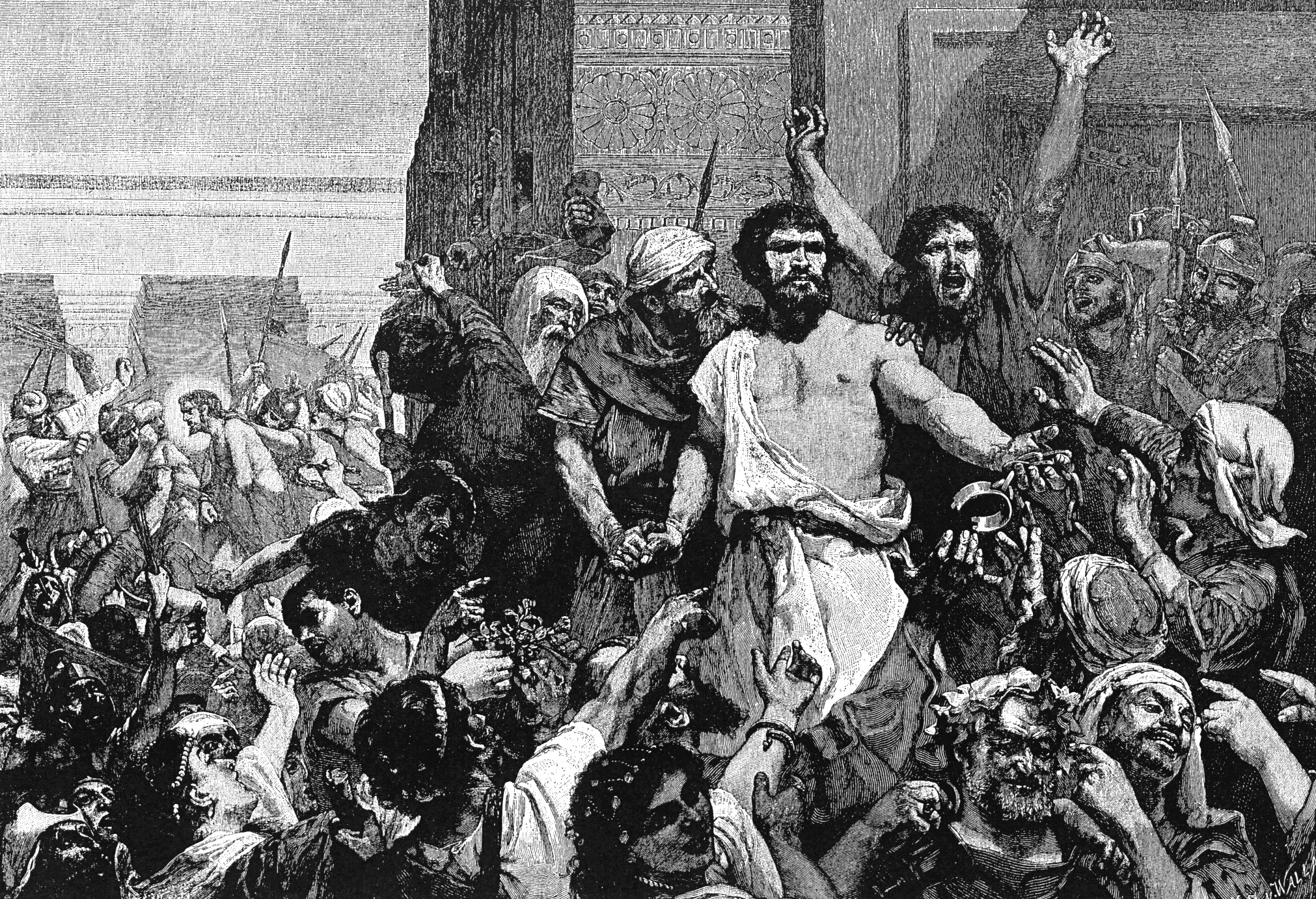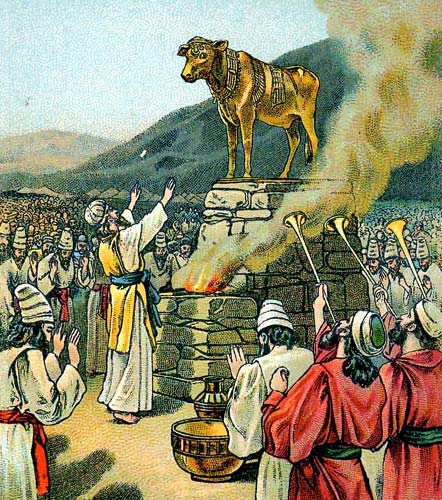Reference links:
Old Testament
More details about sacrifices: when to make them and how to make them properly. Sins that require a guilt offering include cheating in a deal, stealing, committing fraud, lying about lost property that was found, and lying while swearing to tell the truth. For all of these, the guilty party must return anything gained as a consequence of the crime plus an additional 20% and offer a guilt offering on the same day. Punishments are harsher for those who violate the purity laws of the community. Anyone who eats meat from a peace offering while they are ceremonially unclean or who eats blood ever will be cut off from the community.
This reading inspires interesting ideas about punishment in a nomadic tribe like that of the Israelites. Without permanent settlements, there seem to be two options for dealing with trouble makers: forgive them quickly or get rid of them completely. A group on the go would not find imprisonment practical.
New Testament
Crowds keep following Jesus because his fame has spread.
They came from all over Galilee, Judea, Jerusalem, Idumea, from east of the Jordan River, and even from as far north as Tyre and Sidon. The news about his miracles had spread far and wide, and vast numbers of people came to see him.
Jesus was a star. He kind of acted like one.
Jesus instructed his disciples to have a boat ready so the crowd would not crush him.
He and his disciples seem to show little concern for the members of the crowd who were probably crushing each other. As long as Jesus can get away in his boat, it is all okay.
Jesus chooses 12 of his disciples as apostles. These 12 would have the special privilege of accompanying him and he would give them the authority to cast out demons. The teachers of the religious law accuse Jesus of working by Satan’s power when he casts out demons. Jesus says this is silly because Satan would be fighting against himself if he allowed his power to be used to cast out demons.
However, if we believe the story about the pigs related in Matthew (and possibly again later?), then Jesus’ casting out of demons may not actually be as unambiguously against Satan as today’s text wants us to believe. In that story, Jesus casts the demons out of two men and sends them into a herd of pigs. The pigs go mad and plunge to their death (and, as far as we know, Jesus did not even apologize). This story makes it clear that casting out demons is not always the same thing as working against Satan.
We also learn today that according to Jesus,
all sin and blasphemy can be forgiven, but anyone who blasphemes the Holy Spirit will never be forgiven. This is a sin with eternal consequences.
The phrasing here is odd. It says that “all sin and blasphemy can be forgiven” but those who blaspheme against the Holy Spirit “will never be forgiven”. Is this implying that there are some sins that God/Jesus could choose to forgive (and, in the process save a person from eternal suffering and torture) but will not? Or am I putting too much emphasis on this translation’s word choice?
Also, by these standards, I will never be forgiven. Ooops.
Psalms and Proverbs
Good advice from today’s reading in Psalms (mixed into the standard fare of “God will punish the wicked and reward the good”)
Stop being angry!
Turn from your rage!
Do not lose your temper —
it only leads to harm.
On the other hand, today’s Proverbs reading encourages negative attitudes toward those who are suffering and needy:
The Lord will not let the godly go hungry,
but he refuses to satisfy the craving of the wicked.
Lazy people are soon poor;
hard workers get rich.
As organizations from all over the nation that fight poverty and hunger and homelessness know, the sources of poverty cannot be simplified down to someone being lazy. The sources of hunger cannot be simplified to someone being ungodly. Attitudes like those expressed in the above Proverbs only make it harder for those in difficult circumstances to find their way out of them again.

_on_branch.jpg)













